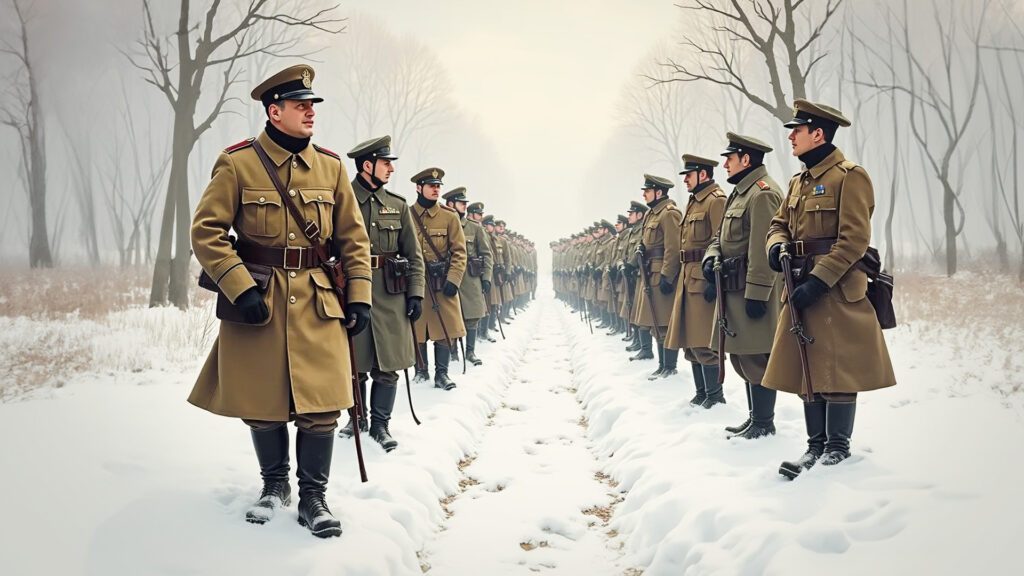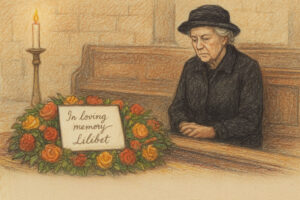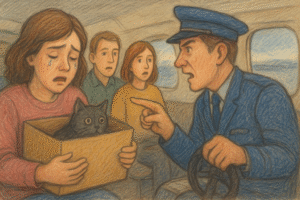In the year 1914, in the middle of the First World War, when the troops of the German Empire and the British troops were facing each other, something took place which was later called the “Christmas Truce”: brief, unofficial ceasefire that arose spontaneously from the very troops that were in combat with each other.
On December 24, the German soldiers began to decorate their trenches with lights and to sing Christmas carols (according to the stories they were singing “Silent Night”). Upon hearing the Germans singing, the British began to respond with Christmas carols in English.
Thus, amidst all of the singing, the tense atmosphere began to relax and the soldiers began to come out of the trenches and to wish each other Merry Christmas, to sing and dance together and even, according to some, to exchange gifts… to the point that, as the testimony of one of the soldiers says: “the Scots began to play their bagpipes and we shared a rare joy.”
It was a night of peace in the midst of a war that extended until the new year and even longer on some fronts. The days following the truce allowed each troop to recuperate their dead that had been left on the enemy side so that they could be buried. Thus, burial ceremonies were organized with soldiers from both sides of the conflict in “no-man’s land” reciting Psalm 23: The Lord is my shepherd; there is nothing I shall want. In green pastures he makes me lie down; to still waters he leads me; he restores my soul. He guides me along right paths.
This beautiful and moving “truce” during the First World War is simply a spark, a small shadow of the peacemaking power of Jesus, of the pacifying power of the Child Jesus who has been given to us and who, as the prophet says, will be called among other things the Prince of Peace (Is 9:5).
Jesus’ peace is something much deeper than harmony which is an effect of peace, because the peace of Christ is a gift of God that transforms our hearts. Christ came to bring peace to all men and this He did, not only by revealing that God is the only source of peace, but above all by reconciling men with God through His death on the cross. Those who accept this gift that Christ wanted to give to all men begin to make the experience of peace given by Christ to all men concrete in their lives and begin to work for peace.It is precisely for this reason that St. Thomas says, commenting on the words of the prophet Isaiah, that he is called the Prince of peace in terms of His human nature because He is our mediator, as St. Paul says: But now in Christ Jesus you who once were far off have become near by the blood of Christ. For he is our peace (Eph 2:13-14). This is the main reason why Jesus proclaimed blessed those who work for peace, the real peace that begins in our heart (cf. Mt 5:9).





